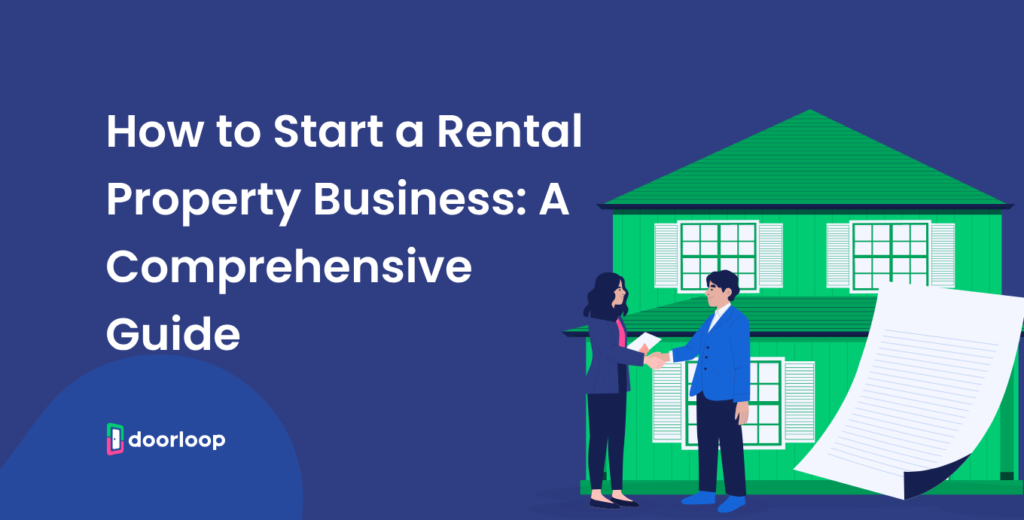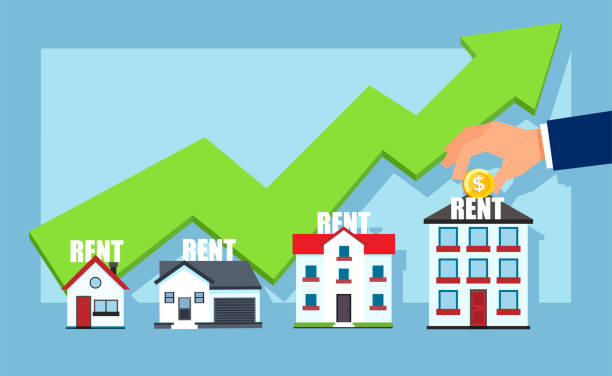When searching for the perfect business property for rent in the United States, it’s essential to consider factors such as location, lease terms, and property features. Renting can offer flexibility and cost savings compared to buying, and this guide will help you navigate the process of finding the ideal commercial space.
What Is Business Property for Rent?
Business property for rent refers to commercial spaces that are leased by businesses for various purposes, such as office space, retail outlets, warehouses, or manufacturing facilities. These properties are typically offered on a long-term lease, providing businesses with a place to operate without the need for purchasing real estate.
Renting a business property offers flexibility, allowing businesses to move or expand without the long-term commitment associated with buying. In many cases, leasing a property is more cost-effective, especially for startups and small businesses that may not have the funds to invest in property ownership.
Why Renting Business Property is a Smart Choice
Renting business property offers several advantages that make it a smart choice for many companies. One of the main benefits is the reduced financial burden compared to purchasing property. Owning a commercial property requires a large upfront investment, along with ongoing maintenance and property taxes. Renting, on the other hand, eliminates these costs, allowing businesses to allocate resources to other areas such as marketing, staffing, and inventory.
Moreover, renting allows businesses to remain flexible. If the business grows or the location becomes unsuitable, leases can be renegotiated or terminated with proper notice. This flexibility is especially beneficial for companies that are expanding quickly or are in the early stages of growth.
How to Find Business Property for Rent
Finding the perfect business property for rent can be a challenging task, but with the right approach, it can be a smooth and rewarding experience. Here are some steps to help you get started:

- Use Online Listings and Commercial Real Estate Websites
- Websites such as LoopNet, Zillow Commercial, and Realtor.com list available business properties for rent across the United States. These platforms provide detailed information about the property, including square footage, rent costs, and lease terms.
- Work with a Commercial Real Estate Agent
- Hiring a real estate agent who specializes in commercial properties can help you save time and ensure you find the best deals. They have access to listings that may not be publicly available and can help you negotiate favorable lease terms.
- Consider Your Business Needs
- Think about your business’s requirements, such as the size of the space, accessibility for customers, parking availability, and any special features like storage or loading docks. This will help you narrow down your search and find properties that meet your needs.
Tips for Choosing the Right Location
When looking for a business property for rent, location is one of the most important factors to consider. Here are a few tips to help you choose the right location:
- Proximity to Customers: Choose a location that’s easily accessible to your target market. Being near major highways, shopping centers, or residential areas can increase foot traffic and sales.
- Competition: Research the competition in the area. You want to be in a location that has a strong demand for your business but isn’t oversaturated with similar services or products.
- Accessibility: Ensure that your business property is easy to reach by car, public transportation, or on foot. The easier it is for your customers or employees to get there, the better.
Key Features to Look for in Business Properties for Rent
When searching for business property for rent, it’s important to evaluate the key features that can impact your operations. Some features to look for include:
- Ample Parking: Adequate parking spaces for both customers and employees can be a big selling point, especially for retail or service-based businesses.
- High Ceilings and Open Space: If you need flexibility in how you use the space, look for properties with open layouts and high ceilings that can accommodate different setups.
- Security: The safety of your business and property is crucial. Look for properties with security systems, good lighting, and secure access points.
Types of Business Properties for Rent
There are several types of commercial properties available for rent, depending on the nature of your business. Some common types include:
- Office Spaces: Ideal for businesses in need of administrative or professional services. These spaces often include individual offices, open work areas, and meeting rooms.
- Retail Spaces: Perfect for businesses that sell products directly to customers, such as stores or showrooms. These spaces are often located in shopping centers or busy street locations.
- Industrial Properties: If you need space for manufacturing or warehouse purposes, industrial properties offer large, open areas with the necessary infrastructure, such as loading docks and high ceilings.
Benefits of Renting Over Buying a Business Property
Renting a business property offers several advantages compared to purchasing one. One of the biggest benefits is lower upfront costs. Buying a property often requires a large down payment and additional expenses, such as property taxes, maintenance, and repairs. Renting eliminates many of these costs, allowing businesses to focus on operations instead of property management.
Another key benefit is flexibility. Renting gives businesses the freedom to relocate or scale their operations without being tied to a specific location. For startups and growing businesses, this flexibility is crucial as they may need to adjust their space requirements as they evolve.
Flexibility of Rental Terms
One of the most appealing aspects of renting business property is the flexibility of rental terms. Unlike purchasing a property, which often involves long-term financial commitments, renting offers various lease options that can be tailored to your needs. Leases typically range from one to five years, but some landlords may offer shorter or longer-term agreements based on your preferences.
This flexibility can help businesses navigate periods of uncertainty, such as economic downturns or changes in business strategy. If your business outgrows its space or no longer requires a physical location, you can simply choose not to renew the lease and move to a more suitable property.
How to Negotiate the Best Business Property Rent Deals
Negotiating the best deal for your business property is essential to ensure you get the most value for your money. Here are some tips to help you negotiate effectively:

- Research Market Rates: Before entering negotiations, research the average rent prices in the area. Understanding what others are paying for similar spaces will give you leverage when discussing terms.
- Consider Lease Length and Rent Increases: Ensure that the lease term and any potential rent increases are in line with your business’s budget and long-term plans. Negotiate for fixed rent terms or limited rent hikes if possible.
- Seek Additional Incentives: Sometimes, landlords may offer incentives such as rent-free months, free renovations, or extra parking spaces to attract tenants. Be sure to ask for these perks during negotiations.
Common Mistakes to Avoid When Renting Business Property
When renting a business property, it’s important to avoid common mistakes that can lead to costly consequences. Some of these mistakes include:
- Overlooking Hidden Costs: Ensure you fully understand all costs associated with renting the property, including utilities, maintenance fees, and property taxes.
- Ignoring Lease Terms: Read the lease agreement carefully before signing to ensure you understand the terms and conditions. Pay attention to clauses regarding renewal, rent increases, and property usage restrictions.
- Failing to Plan for Growth: Make sure the property you rent can accommodate future growth. If your business expands, you may need more space, so choose a location that offers scalability.
Location Is Key to Business Success
The location of your business property is one of the most important factors in determining its success. Being in the right location can increase visibility, drive foot traffic, and improve your business’s overall performance. When evaluating potential properties, consider not only the property’s condition but also the surrounding area, traffic patterns, and competition.
Lease Terms and Conditions
The terms and conditions of your lease are crucial in defining your relationship with the landlord and outlining your rights and responsibilities as a tenant. Some common lease terms to consider include:
- Lease Length: Shorter leases provide flexibility, while longer leases may offer stability and more favorable rent rates.
- Maintenance Responsibilities: Clarify who is responsible for repairs and maintenance. Some leases may require tenants to cover certain maintenance costs.
- Exit Clause: Ensure that you have the option to terminate the lease early if your business needs to change.
The Bottom Line
Renting business property in the United States offers a range of advantages, including lower upfront costs, flexibility, and the ability to choose the right location for your business. By considering key factors such as property type, location, lease terms, and negotiation strategies, you can secure the best possible deal and find a space that supports your business’s growth and success.
Finding the perfect business property for rent requires careful research, planning, and understanding of your needs. Whether you’re a startup looking for a small office space or an established company in need of a larger facility, renting can provide the flexibility and cost savings necessary to thrive in today’s competitive market.


